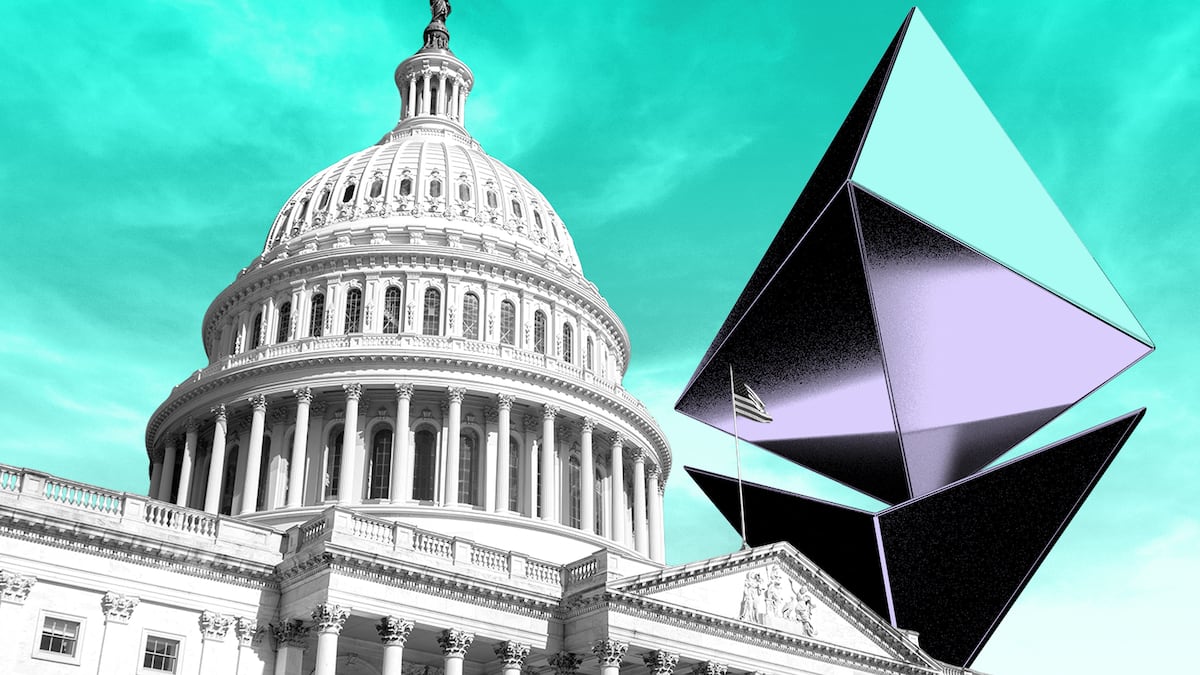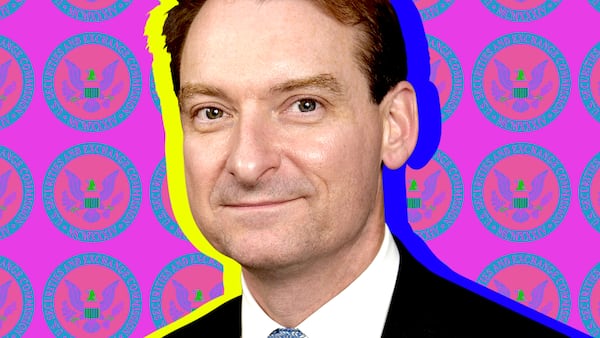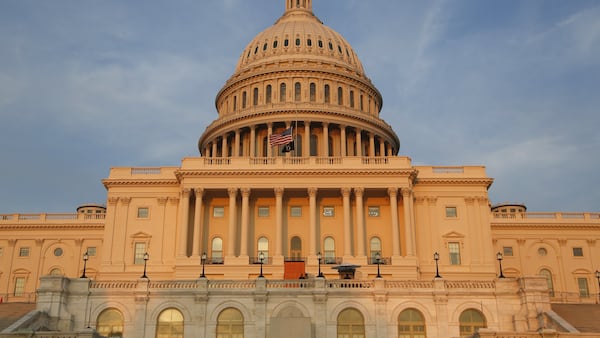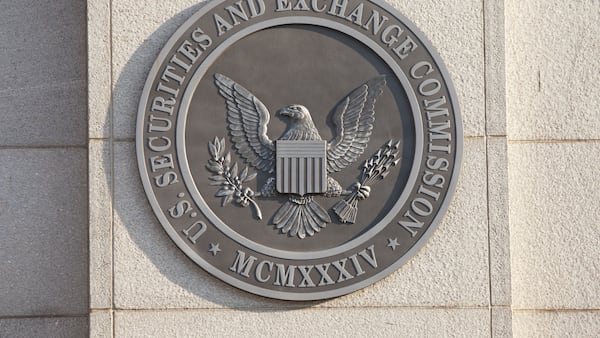- The House bill would end regulators’ 'food fight' over crypto.
- Crypto projects that pass test to get less oversight.
- Industry opponents fear 'endless opportunities for regulatory arbitrage.'
Crypto idealists have long envisioned finance without middlemen.
They have also desired a more democratic internet where applications are owned by users, rather than a small cadre of executives and investors.
In short: decentralisation.
The tenet is the north star for many crypto developers. Now, it’s at the heart of a 236-page bill that would create the US’ first regulatory regime for crypto.
The Digital Asset Market Clarity Act of 2025, introduced by lawmakers in the US House of Representatives last week, proposes lighter regulations for blockchains and blockchain-based applications that meet its definition of decentralisation.
The act largely exempts so-called DeFi protocols from those regulations altogether.
Defining decentralisation
While that may sound good to DeFi supporters, it has alarmed crypto sceptics.
They argue such legislation would create a loophole that can be easily exploited by bad actors and the giants of traditional finance.
And yet the bill’s definition of decentralisation doesn’t go far enough for some crypto advocates.
Among other things, it sets a much lower bar for blockchain projects launched before 2020, many of which have relatively centralised ownership structures.
“If we want to really see flourishing of a new technology that is going to bring about greater equity, greater potential for growth, better control for users and Americans, it’s only going to happen if the blockchains are decentralised,” Connor Spelliscy, founder and executive director of the Decentralization Research Center, told DL News.
‘I don’t think that those projects should be given a free pass.’
— Sarah Brennan, Delphi Ventures
As a so-called market structure bill, the Clarity Act addresses a long running turf war between the Securities and Exchange Commission and the Commodity Futures Trading Commission.
Both financial watchdogs have attempted to claim jurisdiction over crypto markets by suing companies that allegedly broke the laws that regulate financial assets.
Crypto advocates say the confusion forced many in the industry offshore, where the rules were clearer and the threat of a government enforcement action was lower.
Last year, the House passed FIT21, a so-called market structure bill that sought to end regulators’ “food fight,” in the words of one of its sponsors.
The industry hailed the bill’s passage as a landmark achievement for crypto. But some industry attorneys argued for its demise, saying it gave regulators far too much power. The bill ultimately died in the Senate.
Updated bill
With control of Congress and the White House, Republicans have since pushed for an updated market structure bill more to crypto’s liking.
Lawmakers have largely delivered, Sarah Brennan, general counsel at crypto firm Delphi Ventures and an advisor at the Decentralization Research Center, told DL News.
“I actually feel listened to,” she said. “We might have fine tuning, but it’s not like they’re ignoring our contingent, which is also very new.”
‘Intrinsically linked’
Digital assets that are “intrinsically linked” to the operation of blockchains and blockchain-based applications are considered digital commodities, according to the Clarity Act.
The SEC would oversee the initial sale of digital commodities sold as “investment contracts,” with more lenient requirements for issuers that raise less than $75 million and have concrete plans to decentralise within four years.
The CFTC would oversee secondary sales of digital commodities.
‘The only thing clear about this bill is we need to start over.’
— Rep. Maxine Waters
Centralised digital commodity issuers would have to provide the SEC and the public with a vast amount of information regarding their business, including their finances, tokenomics, the project’s planned path to decentralisation, its source code, and perceived risks.
Issuers will have to provide the SEC with the identities of insiders, which the agency would generally keep confidential.
The bill also makes it easier for banks to hold crypto and creates new rules for storing customers’ crypto. It also creates a right to crypto self-custody.
‘Free pass’
But the Clarity Act has its flaws, Brennan said.
Among them: a definition of decentralisation that benefits blockchain projects launched before 2020.
According to the bill, blockchain projects that are open source, with pre-established, transparent rules are considered decentralised as long as no person or group has unilateral control or more than 20% of the voting power vested in those projects’ tokens.
Projects that meet those requirements are deemed “mature,” and subject to less regulatory oversight.
But projects that launched before 2020 would have a much easier time meeting the maturity test: as much as half of their tokens can be held by insiders, according to the bill.
“I don’t think that those projects should be given a free pass,” Brennan said. “We already have the data to see what happens with centralised, concentrated plays, where retail is just exit liquidity.”
Moreover, the actual benefit of passing the decentralisation “purity test” isn’t strong enough, she said.
The benefits of decentralisation include fewer reporting requirements, more lenient rules regarding insider selling, and an easier path to listing on crypto exchanges.
Finally, provisions that exempt DeFi activities don’t prevent states from imposing their own regulations on the sub-sector, according to the bill’s text.
“They did introduce a stick, but there should be more of a carrot for reaching decentralisation,” Brennan said.
‘Regulatory arbitrage’
Meanwhile, crypto opponents in Congress pounced on the decentralisation test and the DeFi carveout during a hearing on Wednesday.
“The bill creates vague new definitions that will result in continued litigation … which the largest players, including big banks, will game at the expense of crypto startups,” said Representative Maxine Waters, a Democrat from California and the ranking member on the House Financial Services Committee.
“The only thing clear about this bill is we need to start over.”
Former CFTC Chairman Timothy Massad, one of several experts invited to testify in front of lawmakers Wednesday, said the bill’s “metrics for control” are weaker than those found in existing securities laws.
And the exemption for DeFi protocols could enable trading of bona fide securities without SEC oversight, he added.
“It will provide endless opportunities for regulatory arbitrage,” he said.
Aleks Gilbert is DL News’ New York-based DeFi correspondent. You can reach him at mailto:aleks@dlnews.com.









